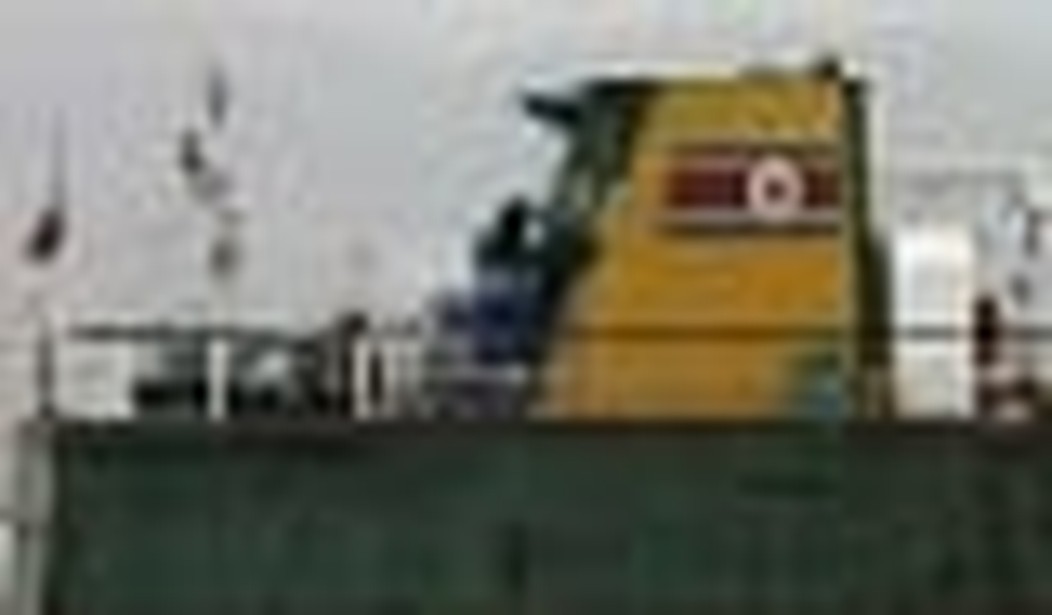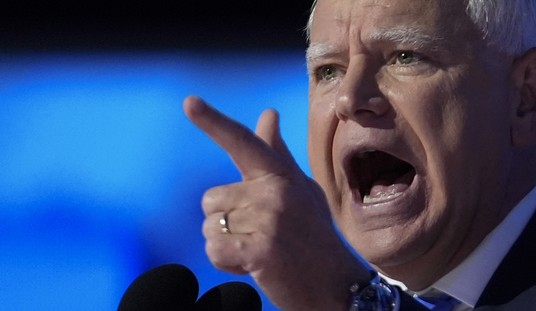The United States is tracking a North Korean vessel, the Kang Nam, which left port on Wednesday. The ship first made its way south, hugging the China coast. It appears headed for an initial refueling stop in Singapore or a port nearby.
Why the interest in the tramp freighter? The Kang Nam is, in the words of a senior defense source, a “repeat offender,” a vessel known to carry “proliferation materials.” “North Korea does not export anything other than weapons,” said an American official to Fox News. “And this ship is presumed to be carrying something illicit given its past history.”
So Washington wants to look at what is in its hold. On June 12, the Security Council, at the urging of the United States and six other nations, unanimously passed Resolution 1874. The new measure bans Pyongyang from selling arms and requires member states to confiscate and destroy exported weapons that they find.
It also calls upon countries to inspect North Korean cargoes on the high seas — but only “with the consent of the flag state,” in this case, North Korea. Should Pyongyang refuse — a virtual certainty — the United States can, within the terms of the resolution, direct the Kang Nam to “an appropriate and convenient port” for inspection by local officials. Should Pyongyang refuse to divert the ship — another certainty — the resolution contemplates the filing of a report to a UN committee.
Our remedy is to file a report? Security Council discussions stalled over China’s objections to searches on the high seas. And after passage, Beijing made it clear it did not want the United States using muscular measures to enforce Resolution 1874. “Under no circumstances should there be use or threat of the use of force,” said Zhang Yesui, Beijing’s UN ambassador.
Washington, however, is not without countermeasures. The Obama administration can, as the Pentagon says, “poison the host.” The Kang Nam, when it docks, will need to take on fuel and food and will be in no position to object to local authorities inspecting the vessel. India, for instance, has been especially vigilant in searching North Korean cargoes. Singapore can be counted on to give the North Koreans a particularly hard time as well.
If the Kang Nam is indeed carrying illicit material and Kim Jong Il wants it delivered — in other words, if he is not staging an incident to embarrass the Obama administration — he has surely arranged for the ship to visit only friendly ports along the way. That means the United States, if it chooses to honor the restraints imposed by Resolution 1874, may be forced to watch the vessel unload a dangerous cargo at its intended destination. This possibility, of course, raises a critical issue: Should we be outsourcing our security to the UN?
We relied on the UN in the first part of this decade, and what happened? North Korea became a nuclear weapons state. China didn’t enforce the 2006 Security Council resolution on inspecting North Korean cargoes, and the next year we learned that North Korea was proliferating nuclear technology to Syria.
“The United States will do what is necessary to do to defend U.S. national security and the national security of our allies,” said Stephen Bosworth, Washington’s part-time North Korean envoy. Yet that is not entirely clear, as the record of the last few years indicates. n December 2002, for example, we asked Spain to interdict an unflagged North Korean vessel carrying missiles to Yemen. After the Spanish boarded the ship — risking their lives to do so — we then told them to let the vessel proceed to its destination. What kind of policy was that? We gave Kim Jong Il, as well as everyone else, a big green light to continue proliferation.
There is no greater challenge for the United States than stopping the proliferation of nuclear weapons and ballistic missile technologies. And now we are going to see if the new American president is more resolute than his predecessor and as determined as Bosworth wants us to believe. Chairman Kim has obviously gamed out the Kang Nam situation. Pyongyang has said the interdiction of one of its ships pursuant to the new Security Council resolution means war. He then sent out the vessel five days after the passage of the new UN measure.
Presumably, North Korea’s leader does not want to start a full-scale conflict — that would undoubtedly result in the end of his regime — and he certainly does not want us to seize weapons being exported to customers. That means essentially one of two things: either the Kang Nam is carrying an innocent cargo and Kim is seeking to humiliate us or he thinks he can avoid inspections along the intended route.
In any case, the North Korean leader is stage managing an incident. So far, he and his destitute state have gotten the best of the strongest nation in history. This is, for us, a critical test of strategy and will.









Join the conversation as a VIP Member